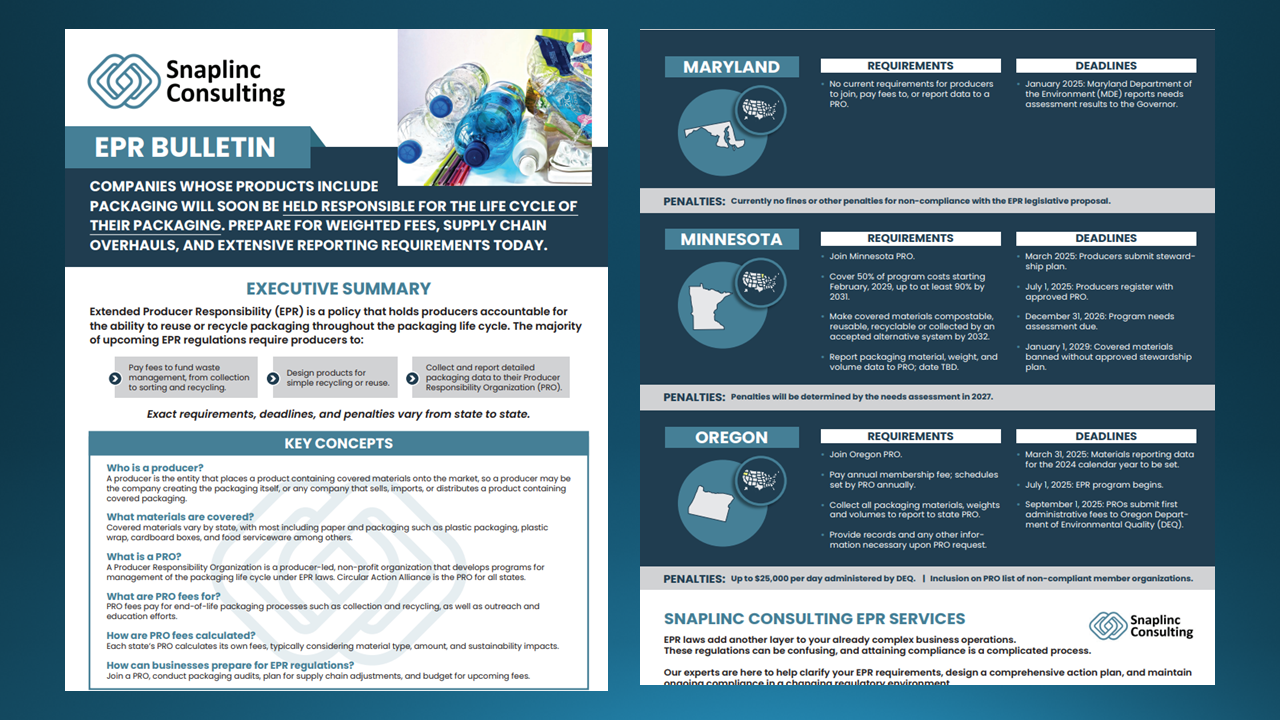California Voluntary Carbon Market Disclosures Act - CA AB 1305
UPDATE - California Assembly Bill No. 1305, known as Chapter 365 or Voluntary Carbon Market Disclosures Act, was approved on October 7, 2023 and requires compliance by January 1, 2024. It focuses on voluntary carbon market disclosures and is a significant addition to California's environmental legislation.
Here’s what you’ll want to know to comply:
What Specific Steps are Required?
Businesses will need to disclose certain information on their websites depending on what actions they’ve claimed:
Businesses that purchase carbon offsets must disclose:
The name of the business entity selling the offset and the offset registry or program.
The project identification number, if applicable.
The project name as listed in the registry or program, if applicable.
The offset project type, including whether the offsets purchased were derived from a carbon removal, an avoided emission, or a combination of both, and site location.
The specific protocol used to estimate emissions reductions or removal benefits.
Whether there is independent third-party verification of company data and claims listed.
Companies making carbon neutral or other similar claims must disclose:
All information documenting how, if at all, a “carbon neutral,” “net zero emission,” or other similar claim was determined to be accurate or actually accomplished, and how interim progress toward that goal is being measured. (e.g. disclosure of the relevant sector methodology and third-party verification, etc.)
Whether there is independent third-party verification of the company data and claims listed
Overwhelmed? We can help you!
What is the Timeline?
The Act specifies that disclosures must be posted by January 1, 2024 and at least annual updates must be made to the website.
What are Penalties for Non-Compliance?
A civil penalty of up to $2,500 per day, not exceeding a total of $500,000, can be imposed for violations. This penalty is enforceable by the Attorney General, district attorney, county counsel, or city attorney in a court of competent jurisdiction.
Are There Any Exemptions or Limitations?
The bill does not apply to entities not operating within California, or not using voluntary carbon offsets sold within the state, or not making carbon neutral or similar claims.
Our Take
This law significantly impacts brands that have purchased carbon offsets or are Climate Neutral Certified and operate in California.
Non-compliance with these requirements can lead to substantial fines. This law aims to enhance transparency and prevent greenwashing by ensuring that climate claims are substantiated and clearly communicated to the public.
As a result and in anticipation of adhering to the recent legislation, any company that makes commitments to climate goals or engages in voluntary carbon markets should begin collecting their data and methodologies supporting their claims.
Snaplinc Consulting Support
At Snaplinc Consulting we can streamline your journey towards compliance with expertise in sustainability and supply chain management. We offer services like gap analysis, policy development, supply chain auditing, training, and reporting assistance. The January 1 deadline is critical, and non-compliance poses risks of hefty fines and reputational damage. Prompt action is not only a legal necessity but also an ethical commitment, enhancing your brand's integrity.
Conclusion
CA AB 1305 adds to an already substantial list of bills targeting businesses and their responsibility to our and the environment’s health. Our consultancy is ready to ensure your seamless transition to compliance, fortifying your business against risks and fostering ethical global supply chain practices. Contact us for tailored guidance and join us in building a sustainable, responsible business landscape.
For more questions or to request a discovery call, contact us below and/or directly schedule a meeting.



